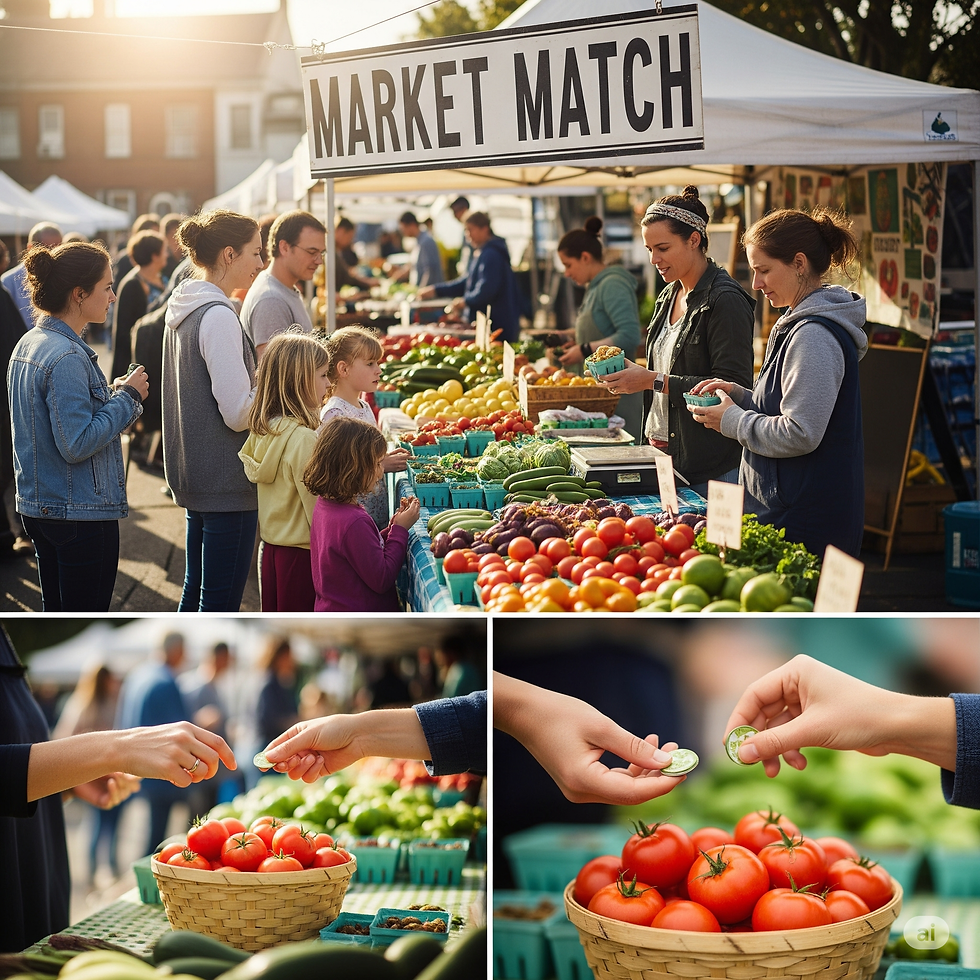Riverside's Food Revolution: How a Local Alliance is Cultivating a Healthier Community
- Mary McLeod

- Jul 21
- 4 min read
Updated: Jul 22

RIVERSIDE, CA – In a city increasingly focused on local sustainability, the Riverside Food Systems Alliance (RFSA) has emerged as a powerful force for transforming how food is grown, distributed, and consumed across the Inland Empire. This unique public-private partnership, born from a community vision, is working tirelessly to build a resilient "farm to fork and back to farm" economy, ensuring healthier lives and a stronger local environment.
In 2014, the City of Riverside sponsored the inaugural GrowRIVERSIDE Conference, which laid the groundwork for RFSA. This event ignited widespread interest in local food, leading to monthly workshops where nearly 90 community members and organizations collaborated to draft a comprehensive Food Policy Action Plan. From this collective effort, the RFSA formally took root as the non-profit tasked with bringing that ambitious plan to life, a plan that was only made possible by the active participation and dedication of the community.

At its core, RFSA's mission is simple yet profound: "to cultivate local food and agriculture for a healthier community". What sets RFSA apart is its holistic approach that tackles everything from food security and waste reduction to farmland preservation and even carbon capture. The alliance operates as a dynamic network, drawing strength from a diverse array of participants, including farmers, restaurateurs, health organizations, government agencies, and businesses. It is all about supporting local farmers and sustainable practices. In more detail, RFSA expounds its mission in this way:
Local Food Security and Resilience: Ensuring consistent and reliable access to healthy, locally produced food for all community members, thereby strengthening the system against disruptions and external shocks.
Improved Local Food Access: Working to remove barriers and enhance the availability of fresh, nutritious local foods, particularly in underserved areas.
Food Rescue, Safety Training, and Food Hubs: Implementing strategies to prevent food waste, providing essential training on food safety, and establishing efficient distribution centers to connect producers with consumers and food assistance programs.
Sustainable Restaurant Practices: Encouraging and supporting local restaurants in adopting environmentally friendly operations and prioritizing the sourcing of local ingredients, thereby strengthening local supply chains.
Community and School Gardens: Promoting the establishment and maintenance of gardens within communities and schools, which foster food literacy, community engagement, and direct local food production.
Farmer Training and Incubator Farms: Investing in the next generation of farmers by providing essential education, practical skills, and resources, including access to land through incubator farm models.
Sustainable Farming Practices and Farmland Preservation: Advocating for and implementing ecologically sound agricultural methods, such as healthy soil management and irrigation efficiency, while actively working to protect vital agrarian lands from urban development.
Building Healthy Soils and Farm Waste Reuse: Focusing on regenerative practices that improve soil health, enhance biodiversity, and repurpose agricultural waste, directly contributing to a circular economy and reducing environmental impact.
Carbon Capture to Temper Climate Change: Recognizing the critical role of sustainable agriculture in mitigating climate change through practices that sequester carbon in the soil, highlighting a commitment to broader environmental benefits beyond food production.
Leading this charge is a dedicated Board of Directors, alongside specialized Working Group Leads who drive specific initiatives. The Board of Directors provides guidance, strategic direction, and oversight, ensuring that RFSA's mission and programs align with its goals. For instance, Sandy Ramirez chairs the board and leads Good Agricultural Practices (GAP) training, while Patrick Mitchell spearheads the Beginning Farmer Training Program. This lean, networked structure allows RFSA to leverage deep expertise from its partners, maximizing impact with minimal overhead.

RFSA's programs are not only varied but also vital and impactful. To nurture the next generation of growers, they offer the NextGen Farmer Training Program and provide technical assistance on healthy soils and irrigation efficiency. For residents, initiatives like the Market Match program make fresh, local produce more affordable, while community and school gardens foster food literacy. Tackling food waste, the Gleaners for Good and Riverside Food Rescue programs harvest surplus crops for those in need, working closely with the Riverside Unified School District (RUSD) Food Hub. The alliance also champions farmland preservation, with projects like the Northside Heritage Meadows aimed at protecting agricultural land, all of which are making a significant difference in our community.
Sustaining these wide-ranging efforts requires a robust financial foundation, and RFSA has built a diversified funding model. They receive significant support from "Fresh and Local" sponsors, including the California Department of Conservation, Kaiser Permanente, and the City of Riverside Public Utility. Additionally, competitive grants from major entities such as the USDA, CalRecycle, and the Robert Wood Johnson Foundation underscore the alignment of RFSA's work with broader regional and national priorities. Community Partners also serves as their fiscal sponsor, providing essential administrative oversight and support.

The extensive network of strategic partners in the alliance amplifies its impact. Collaborations span across sectors, from the Riverside-Corona Resource Conservation District, providing agricultural support, to the Riverside University Health System, which addresses public health through food. Partnerships with the Riverside Unified School District, UC Riverside, and various community non-profit organizations, such as the Riverside Food Co-op, demonstrate a genuinely integrated approach to systemic change.

There are over 1,200 people actively engaged in the initiatives of Riverside Food Systems Alliance, which stands as a testament to what collaborative community action can achieve. By weaving together diverse resources and expertise, RFSA cultivates much more than just food. It cultivates a healthier, more resilient, and equitable future for the Riverside community.



Comments